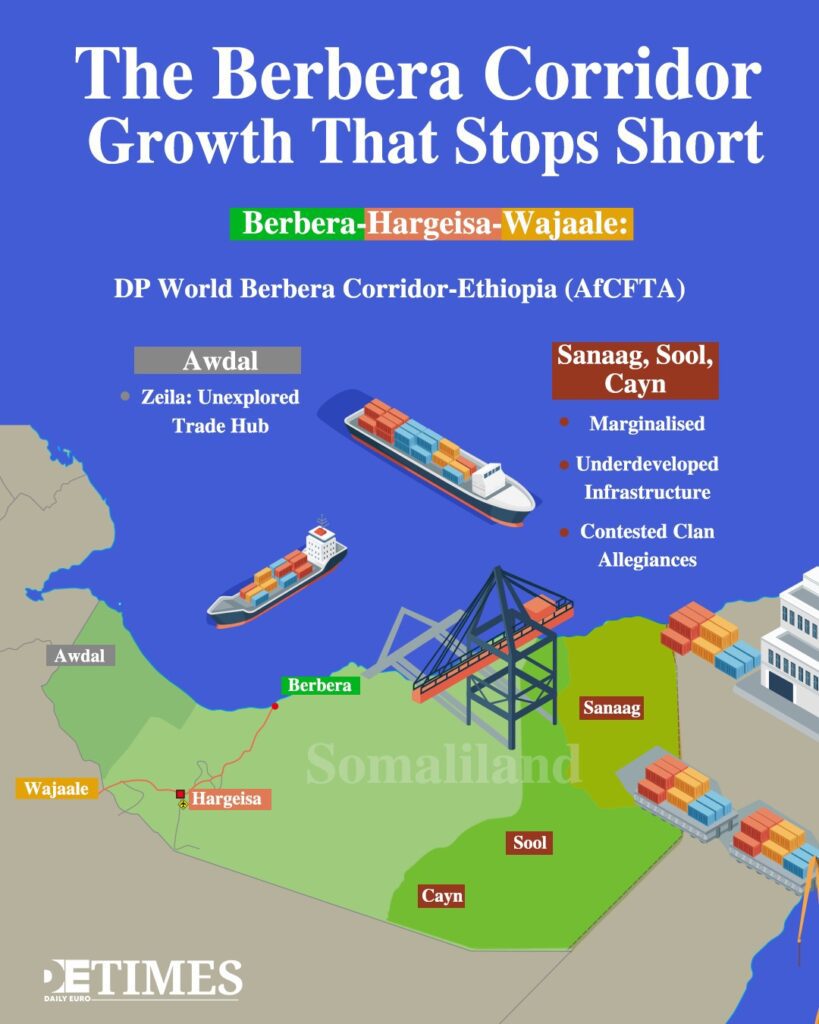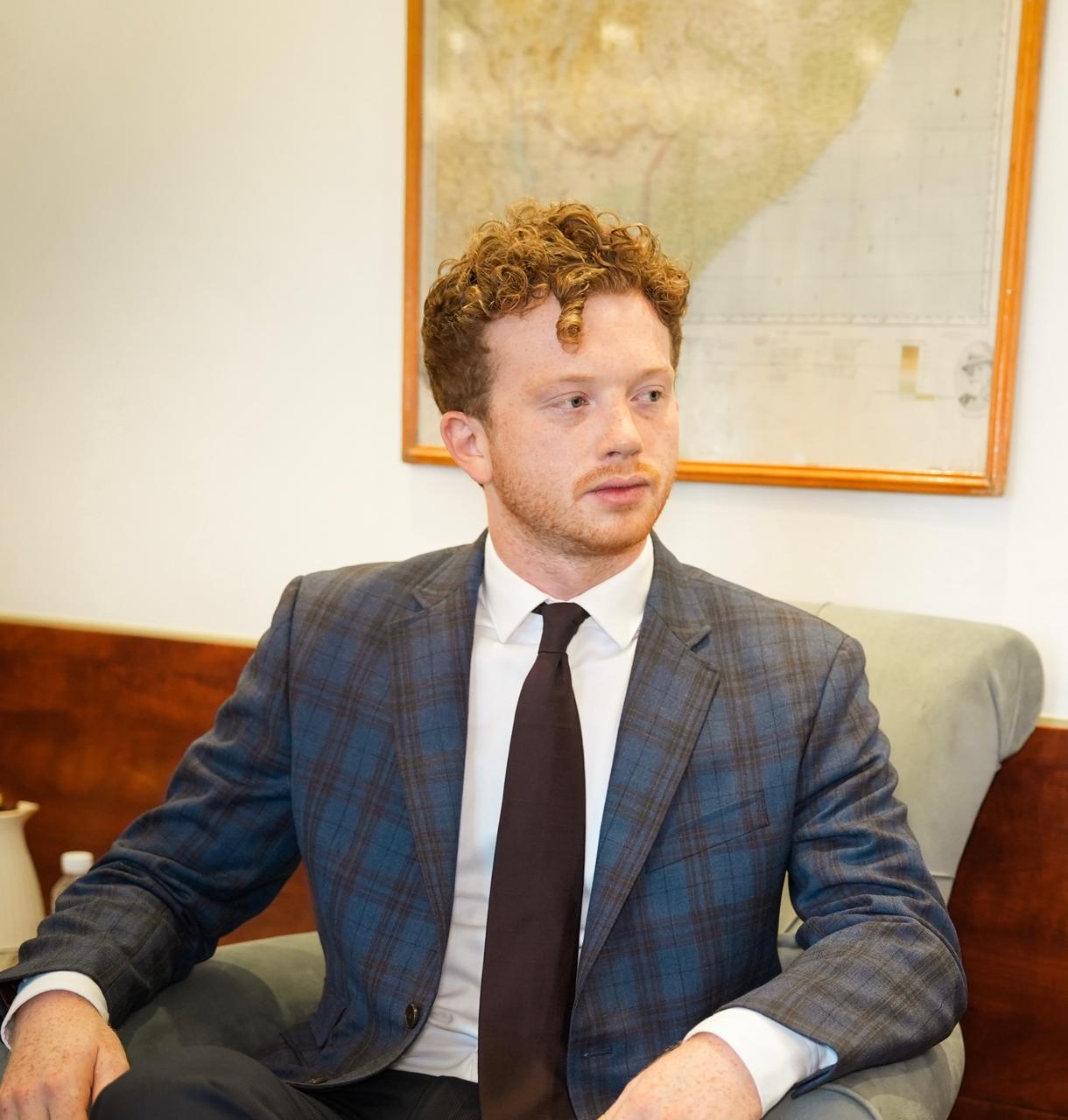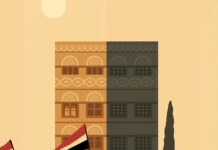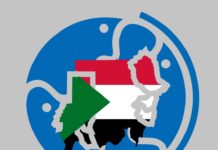As with all states, war-torn or stable, the issue of proxy wars is real especially when weak institutions, scarce resources, and the legacies of (neo-)colonialism are in play. Yet Somaliland stands out. As a stable democracy in the Horn, its experience under British rule differed markedly from the Italian trusteeship in what is now Somalia.
With Somalia still mired in insecurity, the global media has increasingly turned its attention to Somaliland. Yet with attention comes risk. Recent developments show outside actors, most notably Qatar and now Türkiye, shifting their focus toward Hargeisa. President Irro’s visit to Doha in June surprised many analysts, while Ankara has been accused of diplomatic interference in Awdal.
Foreign meddling is a serious concern. Yet Somaliland’s greatest test lies closer to home: within its own political class and institutions.
In an autocracy, dissent can be silenced; in one of Africa’s few functioning democracies, political infighting and uneven development risk undermining the very prize Hargeisa seeks – closer U.S. ties, and perhaps recognition.
External Meddling: Türkiye, Qatar, and Somalia
Reports of Turkish interference are a warning sign if their timing is any guide.
Reports suggest that Türkiye’s Ambassador to Somalia, Alper Aktaş, recently met with Sultan Wabar, a Gadabuursi clan leader and separatist figure from Awdal, in Mogadishu. Bound by diplomatic convention, it is unusual for countries like Türkiye – who already maintain a presence in both Mogadishu and Hargeisa – to openly consult with figures linked to separatist causes.
According to the Somaliland Foreign Ministry, the government summoned the General Consul of the Republic of Türkiye in Hargeisa following reports of a recent engagement in Mogadishu between the Turkish Ambassador and an individual actively involved in “hostile actions” against Somaliland.
Somali media and MPs confirmed the meeting, with Awdal seperatist figure, Sultan Wabar, on X.
The meeting came as Ankara deepens its economic footprint in Somalia, with Turkish firms securing majority stakes in future oil and gas concessions while much of Somalia’ s population lives in poverty.
According to Article 4.7 of leaked documents, obtained by investigative outlets, Turkish petroleum firms are reported to secure 90% access of petroleum annually of Somalia’s reserves, as Somalia’s own share of production is set at 5%, whilst 67% (2/3) of Somalis live in poverty.
Somali and Turkish official sources deny this, but the nature of Türkiye’s involvement in Somali oil deals remains unclear.
In April 2025 the Federal Government of Somalia moved to recognise SSC-Khatumo as a federal entity – a formal step that undercuts Hargeisa’s claim to those territories. Las Anod in the Sool region remains the main hotspot of Mogadishu-backed militias, while Sanaag and Cayn are marked by clan tensions that have at times escalated into armed clashes between SSC-Khatumo fighters and Somaliland forces, particularly in Sanaag.
While many tensions in Sanaag and Cayn are clan-based, these regions have also seen episodic armed clashes — most notably the December 2024 fighting around Erigavo — between SSC-Khatumo elements and Somaliland forces.
Sultan Wabar’s story illustrates the dangers of armed violence. Arrested in 2015 after arming a militia and fleeing to Ethiopia, he was later pardoned by former President Bihi. Yet Wabar’s ties to Mogadishu and his calls for “One Somalia” continue to resonate among some Gadabuursi in Awdal who feel underserved by Hargeisa’s development agenda.
Still, Somaliland’s government downplays the seriousness of events in Awdal. As Foreign Minister Abdirahman Adam put it:
“We view these incidents as limited in scope and not reflective of broader stability and cohesion of Somaliland. While some may attempt to amplify such matters for political purposes, our focus remains on preserving peace and continuing our nation’s steady progress.”
Uneven Development Fuels Clan Politics
External actors can only exploit divisions if grievances already exist.
In Awdal, elders express frustration with uneven development. Projects have focussed on the Hargeisa-Berbera-Wajaale corridor, while peripheral regions see little investment.
Somaliland’s democracy is structured around clan power-sharing, but the distribution of benefits is uneven. The Isaaq clan resides in the central and more developed areas – Hargeisa, Berbera, Burao – while other clans in Awdal in the west and Sanaag, Sool, and Cayn in the east often feel sidelined.
Clan politics remain stubbornly present. In Las Anod, home to the Darod, grievances about autonomy, development, and representation exploded into violence. In Awdal, home to the Gadabursi, discontent continues to be communicated via dialogue than by arms.
Foreign Minister Adam stressed that the idea of ‘clan’ does not define Somaliland’s political destiny, especially in Awdal.
“I say this with confidence because I am from the Awdal region myself.
The people of Awdal have been at the forefront of establishing peace in Somaliland and remain among the strongest pillars of our nationhood. It is unfortunate that certain actors in Mogadishu seek to destabilise these local matters for their own political interests.
The reality, however is clear, the people of Awdal see Somaliland as their own, and their commitment to its peace and stability has always stayed solid with their progress.”
Mogadishu’s Calculus and Diaspora Politics
Mogadishu’s strategy is clear: weaken Somaliland’s case for independence by amplifying local opposition, especially where grievances can be redirected toward federalism.
The Awdal State Movement, led by Dr. Ali Ibrahim Bahar, has emerged as a vehicle for this agenda, advocating for autonomy within Somalia’s federal system.
Somali analysts and state media frame Somaliland’s recognition bid as secession by a federal member state. Yet Somaliland’s claim rests on an independence that predates the 1960 union, when British Somaliland gained sovereignty before merging with Somalia.
As Foreign Minister Adam explained:
“We are mindful that within Africa there are sometimes concerns that recognition could be misinterpreted as encouraging secession. However, Somaliland’s case is unique.
We are not seceding from another state; we are reclaiming a sovereignty that we voluntarily entered union with Somalia in 1960, and later chose to withdraw from when that union failed. This makes Somaliland’s case distinct and different from other situations on the continent.”
This distinction underscores Hargeisa’s narrative: recognition would not fuel secessionism but instead represent an African-led success story in resolving statehood through dialogue and historical legitimacy based on the colonial borders as per the constitution of the African Union.
Therefore, the recognition of SSC-Khatumo as a federal state is a challenge to Hargeisa’s claim to its 1960 borders, while disputes in Las Anod and Awdal expose how development gaps can be politicised. The Khatumo issue is particularly fraught, with Puntland also laying claim to Las Anod, creating a layered contest over identity, governance, and external influence.
International actors add complexity. U.S. Congresswoman Ilhan Omar, citing concerns over the Ethiopia–Somaliland Memorandum of Understanding, has echoed Mogadishu’s line. While her interventions reflect diaspora politics and carry political weight in Washington, they also risk conflating genuine concerns over representation with unionist campaigns.
For Hargeisa, the challenge lies in this distinction. Overlooking legitimate grievances about economic and political marginalisation could alienate regions like Awdal. But responding too slowly risks leaving space for Mogadishu—and its allies in Ankara or Doha—to turn local discontent into a lever against Somaliland’s recognition bid.
Awdal Vs Las Anod: Two Paths, Same Warnings
Awdal and Sool (Las Anod) share similar frustrations about marginalisation but have responded differently.
Awdal has deep historical roots in education and statehood. From the Adal Sultanate, which flourished around Zeila and Berbera in the 15th century, to its flagship Amoud University, the region prides itself on literacy and dialogue. Elders emphasise peaceful negotiation with Hargeisa, even when representation falls short.
In contrast, Sool is geographically isolated and underdeveloped fuelling unrest on top of territorial debates over sovereignty along three lines: Hargeisa, Garowe, and Mogadishu. Grievances here are reflected in armed violence, with militias contesting central government control, despite attempts at peace talks.
Some analysts point to the issue of clan loyalties as the primary driver of Lasanod’s allegiance with Mogadishu. The Dhulbahante clan, that reside in Sool, never truly accepted Somaliland’s re-assertion of independence from Somalia in 1991. Since March 2023, when the former Somaliland administration under President Bihi stood in power, Somaliland troops have not been in control of the city following the killing of over a dozen protestors by Somaliland security forces.
According to some locals in Awdal, in Las Anod and the wider Sanaag, the Darod (particularly the Dhulbahante) largely favour union with Somalia, a stance shaped by their historical role in the founding of the Somali Republic in 1960 and enduring political ties to Mogadishu. In doing so, many Dhulbahante elders favour greater autonomy or even union with Mogadishu rooted in historical and political identity.
Yet clan identities are not homogenous. Some Darod clans in the SSC regions, namely the Warsengeli in eastern Sanaag, take a more moderate approach: some support Somaliland’s claim for recognition, noticeably the Warsengeli in eastern Sanaag, whilst others support more autonomy outside of any federal union with Somalia. Support therefore wavers with clan politics and regional dynamics.
Education, Literacy, and Dialogue
Yet Awdal’s emphasis on education has tempered its politics. Elders regularly engage with Hargeisa to voice concerns and there remains a strong commitment to dialogue even when frustrations are at boiling point.
As one local elder explained, before meeting with President Irro in Boorama: “We may disagree, but we will not take up arms even if things are not sorted. Dialogue is essential.”
Contrary to the sentiment in Las Anod, where grievances over neglect and representation are rooted in clan politics and a track record of neglect; these grievances are violent. For Hargeisa, the lesson is clear: economic marginalisation must be addressed early and through genuine dialogue, not reactively.
The politics of clans naturally create problems for Hargeisa that are difficult to overcome – specifically in Las Anod – but centering development in the central heartland of the ruling Isaaq clan does little for Somaliland's cause.
The question is whether Hargeisa can maintain the social cohesion and trust internally in areas prone to external outreach: Awdal.
Horn Rivalries and Foreign Patrons
Somalia, backed by Türkiye and Qatar, frames federalism as a solution for all Somali regions.
However, Somalia as a collection of federal states is a collection of federal member states. The country suffers from systemic corruption, weak institutions, and foreign dependence on rents.
The federal system came into play by 2012, under a provisional constitution yet state control has been in turmoil since 1991.
According to Abdirashid Fidow, the Deputy Chief Executive of the Anti-Tribalism Movement and political analyst, federalism serves as a “proxy battleground”.
Fidow is very true as many clans remain beholden to interests following the ‘clan alliances’ under Siad Barre’s rule, emboldened by a federal structure that cements the idea of ‘clan’ than the nation-state. Each foreign power exploits divisions, owing to clan politics that negates the role of Mogadishu, as federalism becomes a platform for fragmentation not reconciliation.
Somaliland, by contrast, has resisted such external penetration by cultivating its democracy and relative stability contrary to Somalia. Yet its democracy is also its vulnerability. Unless representation is broadened and development decentralised, outside actors will find opportunities to destabilise it.
The logic, as per its neighbour, brings risks of course. A neighbourhood where decentralisation is bringing a state to its knees with the advancement of Al-Shabaab and limited central control over autonomous clan leaders in Puntland nor Jubaland.
Awdal risks becoming another arena for militia backed by Mogadishu and funded by its allies. Awdal may be a people of literacy, rooted in dialogue than arms, but education is only a guide than a guarantee for stability.

The Way Forward: Reform or Risk
If Somaliland is to secure international recognition—or at least stronger investment—it must ensure that democracy delivers for all its citizens, not just those in the central corridor.
Promising steps include plans to build an airport in Boorama and efforts to extend the Berbera Corridor’s benefits beyond the Hargeisa–Berbera axis.
The Foreign Minister spoke of “Berbera as a cornerstone of our economic and security strategy. Through investments such as DP World and interest from the United States and UAE, Berbera is transforming into a regional trade hub with global reach.”
Minister Adam went on to describe the port city not as a “bargaining chip” but as a “platform” for “mutually beneficial cooperation on maritime safety and counter-piracy.”
Development initiatives ought to emphasise the benefits of Berbera to the eastern and western regions whilst investing in initiatives east of the Berbera corridor.
However, more ambitious action is needed on economic and political representation for those in Awdal and eastern Somaliland to consolidate Somaliland’s territorial claims along it’s colonial borders of 1960 in accordance with the African Union:
- Invest in Zeila Port to revive Awdal’s historic trading networks linking Berbera to other regional ports along the Gulf of Aden, tying in maritime and land trade routes.
- Invest in eastern region of Sanaag: infrastructure development between Hargeisa-Erigavo-Bosaso.
- Rebalance political representation to include non-Isaaq clans more meaningfully in governance across defence, foreign affairs, trade, and other key ministries. Representation must go beyond tokenism, but include genuine input from the Gadabuursi in Awdal, in addition to the two sub-clans of the Harti sub-clan of the Darod: the Warsangali and Dhulbahante.
Democracy is more than elections. Without inclusive governance, Somaliland risks a slow erosion of unity at the hands of foreign-backed movements.
Double-Edged Sword: Democracy in the Horn
Somaliland has shown that democracy is possible in the Horn of Africa, but it faces its greatest test yet. The combination of foreign interference, clan-based grievances, and uneven development threatens to undercut its progress.
As Foreign Minister Adam reminded me in our exchange:
“While some may attempt to amplify such matters for political purposes, our focus remains on preserving peace and continuing our nation’s steady progress.”
That progress depends not only on resisting meddling from Mogadishu, Türkiye, or Qatar, but on confronting Somaliland’s own domestic shortcomings. Recognition and stability will not come from ballots alone—they require a political settlement that ensures every region and clan feels represented in the nation’s future.
Article 9 of Somaliland’s Constitution stipulates that Somaliland is a democracy under a plurality of political parties, a true nation-sate in the Westphalian criteria, yet it’s very strength – democracy – needs to represent of those communities within its borders if it seeks to keep its enemies at bay.
Unless Somaliland reforms its power-sharing model and expands development, it risks becoming vulnerable not through war, but through the quiet erosion of trust: an erosion only its own leaders can prevent.
Hargeisa has all the attention and supporters it needs but it must make sure that it’s blessings are not turned into a double-edged sword.
NOTE: This article was written by Editor-in-Chief, Gus Anderson, with official commentary verbatim by Minister Abdirahman Adam, the Foreign Minister of the Republic of Somaliland, with local insight from local elders and wider on-the-ground reporting in Somaliland.
Read Other Articles at DET!
Exclusive: Somalia, Recognition, and Normalisation
Triangular Diplomacy: Djibouti, the Houthis, and Somalia
Chameleon Diplomacy: Qatar and UAE Compete in the Horn






